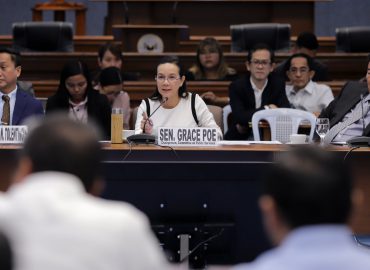.
By Butch Fernandez, August 28 2018; Business Mirror
https://businessmirror.com.ph/payment-systems-regulation-bill-gets-senate-approval/
Image Credit to Business World
THE Senate, voting 20-0, passed on third reading on Tuesday a bill authorizing the Bangko Sentral ng Pilipinas (BSP) to regulate all payment systems in the country, a move touted by proponents to “increase efficiency and lessen risks” in the Philippines’ financial system.
Sponsored for plenary voting by Sen. Francis G. Escudero as chairman of the Senate Committee on Banks and Financial Institutions, the approved Senate Bill 178 was principally authored by Sen. Paolo Benigno A. Aquino IV.
The bill, its proponents say, empowers the BSP with tools to “promote safe, secure, efficient and reliable operation of payment systems in order to control systemic risks and provide an environment conducive to the sustainable growth of the economy.”
Escudero explained that the bill, once enacted into law, addresses the need to “ensure the soundness and efficiency of payment systems—so that the costs of settlement do not interfere with the effective clearing of markets, and so that the systems have the ability to be robust against risks.”
He added that the proposed legislation would achieve its goal by linking financial institutions together for the purpose of “transferring monetary claims and settling payment obligations efficiently.”
As provided in Aquino’s bill, the BSP would have the power to designate any payment system as “posing or has the potential to pose a systemic risk, when such designation is necessary to protect the public interest.”
It defines payment systems as “the set of payment instruments, whether tangible or intangible that enables a person to transfer funds.”
According to Escudero, the payment system can be likened to “a bedrock upon which monetary stability and financial stability rest.” This means, he said, that payment systems could “become channels through which financial risks can be transmitted across financial institutions and markets.”
Escudero noted that central banks are “keen in monitoring developments in the payment system to assess their impact on the demand for money, the influence of monetary policy transactions, and the efficiency and stability of critically related
financial markets.”
For instance, the senator cited the central banks of countries like Singapore, Australia, Indonesia, Cambodia and Myanmar that, he said, are empowered to “oversee and regulate payment systems either in their respective mandates or in special laws,”
The senator stressed that the BSP, given its mandate and functions, must “take a proactive role in the development of a payment system and in ensuring that these systems operate in a safe and efficient manner.”

